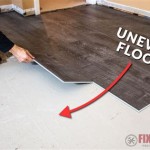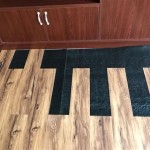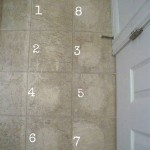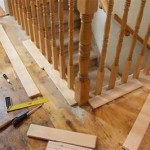Home Theatre Flooring: A Comprehensive Guide to Acoustic and Aesthetic Considerations
The selection of flooring for a home theatre significantly impacts both the acoustic performance and the overall aesthetic appeal of the space. Unlike a typical living room, a home theatre requires meticulous planning to achieve optimal sound quality and a truly immersive viewing experience. The flooring material plays a crucial role in managing sound reflections, absorbing unwanted noise, and enhancing the clarity of the audio system. Furthermore, the chosen flooring should complement the overall design and create a comfortable and visually appealing environment for movie watching.
Choosing the right flooring involves a careful consideration of several factors, including the room’s size and shape, the desired acoustic properties, the existing sound system, and the personal preferences of the homeowner. A decision driven solely by cost or aesthetics can negatively impact the listening experience. This article provides a comprehensive overview of the key considerations and flooring options available for home theatres, offering guidance for achieving the ideal combination of performance and style.
Acoustic Properties and Material Selection
The primary function of flooring in a home theatre, from an acoustic perspective, is to control sound reflections. Hard surfaces, like concrete or tile, reflect sound waves, leading to echoes and reverberation, which can distort the audio and reduce clarity. Conversely, soft surfaces, such as carpets and rugs, absorb sound waves, minimizing reflections and creating a quieter, more controlled environment. The ideal flooring for a home theatre strikes a balance between absorption and diffusion, preventing excessive reverberation without making the room sound unnaturally dead.
Carpet is often the preferred choice for home theatre flooring due to its excellent sound-absorbing properties. The fibers of the carpet trap sound waves, reducing reflections and dampening ambient noise. The thickness and density of the carpet play a significant role in its acoustic performance. Thicker, denser carpets with a higher pile height provide greater sound absorption. Adding a quality carpet pad underneath further enhances its sound-absorbing capabilities and provides additional cushioning for comfort.
However, excessive carpet can lead to a "dead" sounding room, where the audio lacks liveliness and sounds muffled. This is especially relevant in smaller home theatres. To mitigate this, consider using area rugs instead of wall-to-wall carpeting. Area rugs allow for more control over the amount of sound absorption in the room. They can be strategically placed to absorb reflections from specific areas, such as directly in front of the speakers, while leaving other areas with harder surfaces to provide some degree of sound diffusion. This approach can help create a more balanced and natural sound field.
Hardwood flooring, while aesthetically pleasing, is not ideal for home theatres due to its reflective properties. Sound waves bounce off the hard surface, creating echoes and reverberation. However, hardwood can be incorporated into a home theatre design if properly treated with sound-absorbing materials. Large area rugs, strategically placed acoustic panels on the walls, and heavy curtains can help mitigate the reflective properties of hardwood flooring and improve the acoustic performance of the room.
Laminate and vinyl flooring offer another alternative to solid hardwood, often at a lower cost. While offering similar aesthetic qualities to hardwood, their acoustic properties are also similar - reflective. Therefore, the same acoustic treatment strategies applicable to hardwood flooring (area rugs, acoustic panels, heavy curtains) must be implemented to make them suitable for a home theatre. The use of a dense underlayment can add a small amount of sound dampening, but it is not a substitute for comprehensive acoustic treatment.
Comfort and Aesthetics
Beyond acoustics, the comfort and aesthetics of the flooring play a crucial role in creating a welcoming and enjoyable home theatre experience. The flooring should be comfortable to walk on, especially during long movie sessions. It should also complement the overall design of the room, enhancing the visual appeal and creating a cohesive and immersive environment.
Carpet offers superior comfort compared to hard surfaces, providing a soft and cushioned surface underfoot. The texture and color of the carpet can also contribute to the overall aesthetic of the room. Darker colors, such as deep blues, grays, and blacks, are popular choices for home theatres as they absorb light and reduce glare on the screen. These colors also create a more intimate and immersive atmosphere.
However, darker colors can also make a room feel smaller and more enclosed. To counteract this, consider incorporating lighter accents and using proper lighting to create a sense of space. If a lighter color carpet is desired, ensure it is a low-reflective material and consider darker area rugs strategically placed in front of the screen. The choice of carpet pile (the density and height of the carpet fibers) also influences both comfort and aesthetics. A plush, high-pile carpet provides a luxurious feel underfoot, while a low-pile carpet is more durable and easier to clean.
When using area rugs over hard surfaces, consider the size and placement carefully. The rug should be large enough to cover the main seating area and extend slightly beyond the speakers to absorb reflections from the floor. The color and pattern of the rug should complement the overall design of the room and add visual interest without being distracting. Avoid overly busy patterns that can clash with the movie being watched. Solid colors or subtle patterns are generally preferred.
For individuals who prefer the look of hardwood or laminate flooring, incorporating comfortable seating and strategically placed area rugs becomes even more important. Opting for comfortable, reclining chairs with built-in footrests can enhance the viewing experience. Placing a large, soft area rug in front of the seating area can provide a comfortable and visually appealing space. The rug should be thick enough to provide adequate cushioning and prevent echoes from the hard floor.
The selection of flooring materials can also impact the overall maintenance requirements of the home theatre. Carpet requires regular vacuuming to remove dust and debris, and occasional professional cleaning to remove stains. Hardwood and laminate flooring are easier to clean and maintain but may require periodic polishing or refinishing. Consider the ease of maintenance when making your flooring decision.
Installation Considerations and Cost
The installation process and associated costs are important factors to consider when selecting flooring for a home theatre. Installing carpet is generally more straightforward than installing hardwood or laminate flooring, and it can often be done as a do-it-yourself project. However, professional installation is recommended for best results, especially for complex layouts or when dealing with high-end carpeting. Proper installation ensures a smooth, even surface and minimizes the risk of wrinkles or bumps.
Hardwood and laminate flooring installation requires more specialized skills and tools. It is generally recommended to hire a professional installer to ensure a proper and lasting installation. The cost of installation varies depending on the type of flooring, the size of the room, and the complexity of the layout. It is important to obtain multiple quotes from qualified installers and compare prices before making a decision. Consider the cost of removing existing flooring in the overall project budget.
The cost of flooring materials varies significantly depending on the type of flooring, the quality of the materials, and the brand. Carpet is generally the most affordable option, followed by laminate and then hardwood. However, high-end carpets can be more expensive than lower-quality hardwood floors. When comparing prices, consider the long-term value of the flooring and its impact on the overall home theatre experience. Investing in high-quality flooring can improve the acoustics, comfort, and aesthetics of the room, resulting in a more enjoyable and immersive viewing experience.
In addition to the cost of the flooring and installation, consider any additional costs associated with preparing the subfloor. The subfloor, which is the underlying layer beneath the finished flooring, must be level and stable to ensure a proper and lasting installation. Any imperfections in the subfloor, such as cracks or uneven surfaces, must be repaired before installing the new flooring. This can add to the overall cost of the project.
Consider the placement of wiring and cables before installing the flooring. If you plan to run speaker wires or other cables under the flooring, ensure you install appropriate conduits or channels to protect the wires and prevent damage. Running wires under the flooring can help create a cleaner, more organized look in the home theatre. Planning the wiring layout in advance can save time and money during the installation process.
When selecting a flooring contractor, verify their experience with home theatre installations and their understanding of acoustic principles. A knowledgeable contractor can provide valuable advice and guidance on selecting the right flooring materials and installation techniques to optimize the acoustic performance of the room. Ask for references and review their portfolio to assess their quality of work. A well-chosen contractor can ensure a successful and satisfying home theatre flooring installation.

7 Things To Consider When Designing Your Home Theater Flooring Inc

7 Things To Consider When Designing Your Home Theater Flooring Inc

Best Flooring For Home Theaters Simple Cinema

7 Things To Consider When Designing Your Home Theater Flooring Inc

The Best Home Theater Carpet Options

Home Theater Carpet Mozak S Floors And More

7 Things To Consider When Designing Your Home Theater Flooring Inc

Home Theater Carpet Mozak S Floors And More

Home Cinema Carpet Wall To Cross Carpets

The Best Media Room Flooring Material Tile Wizards
Related Posts








